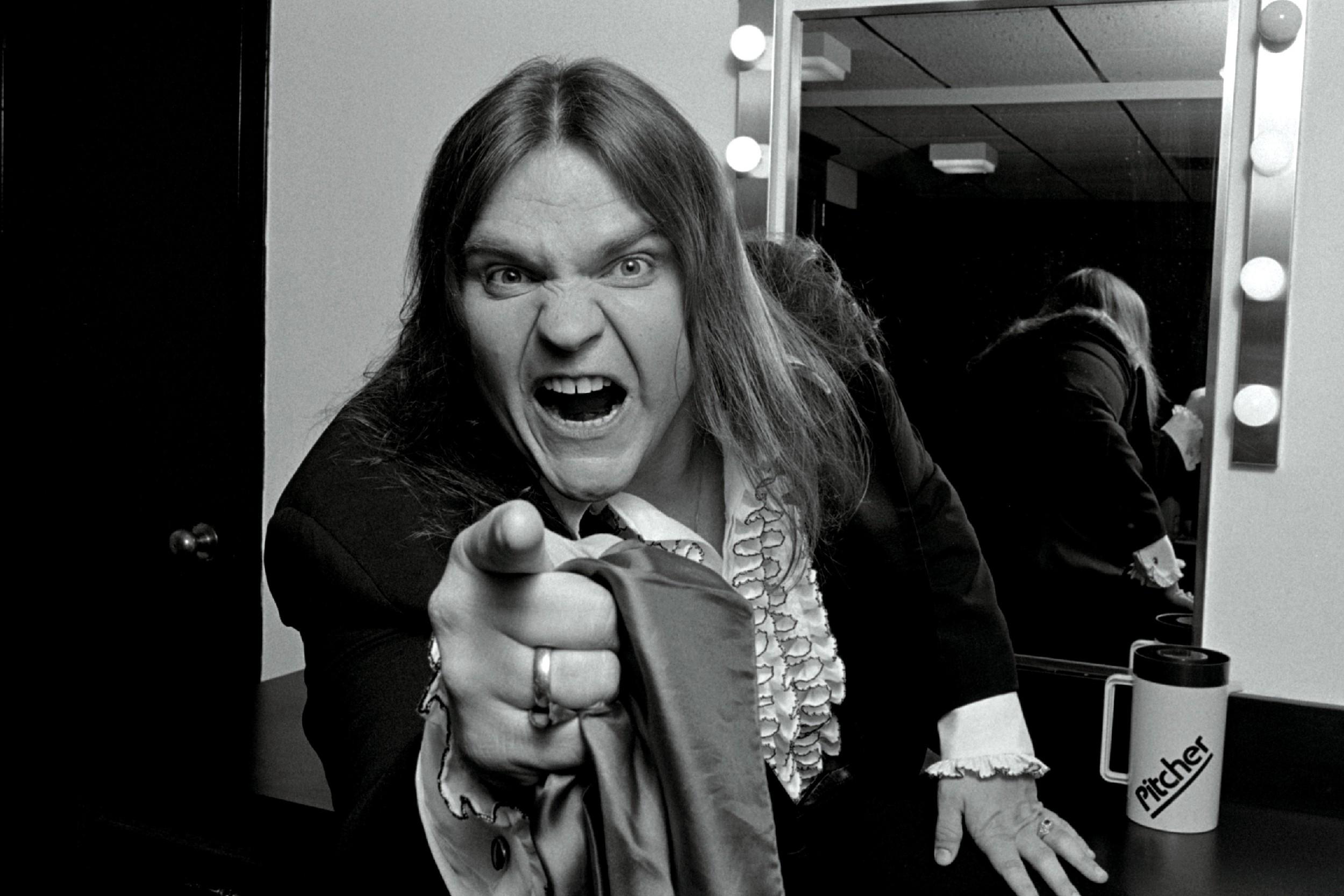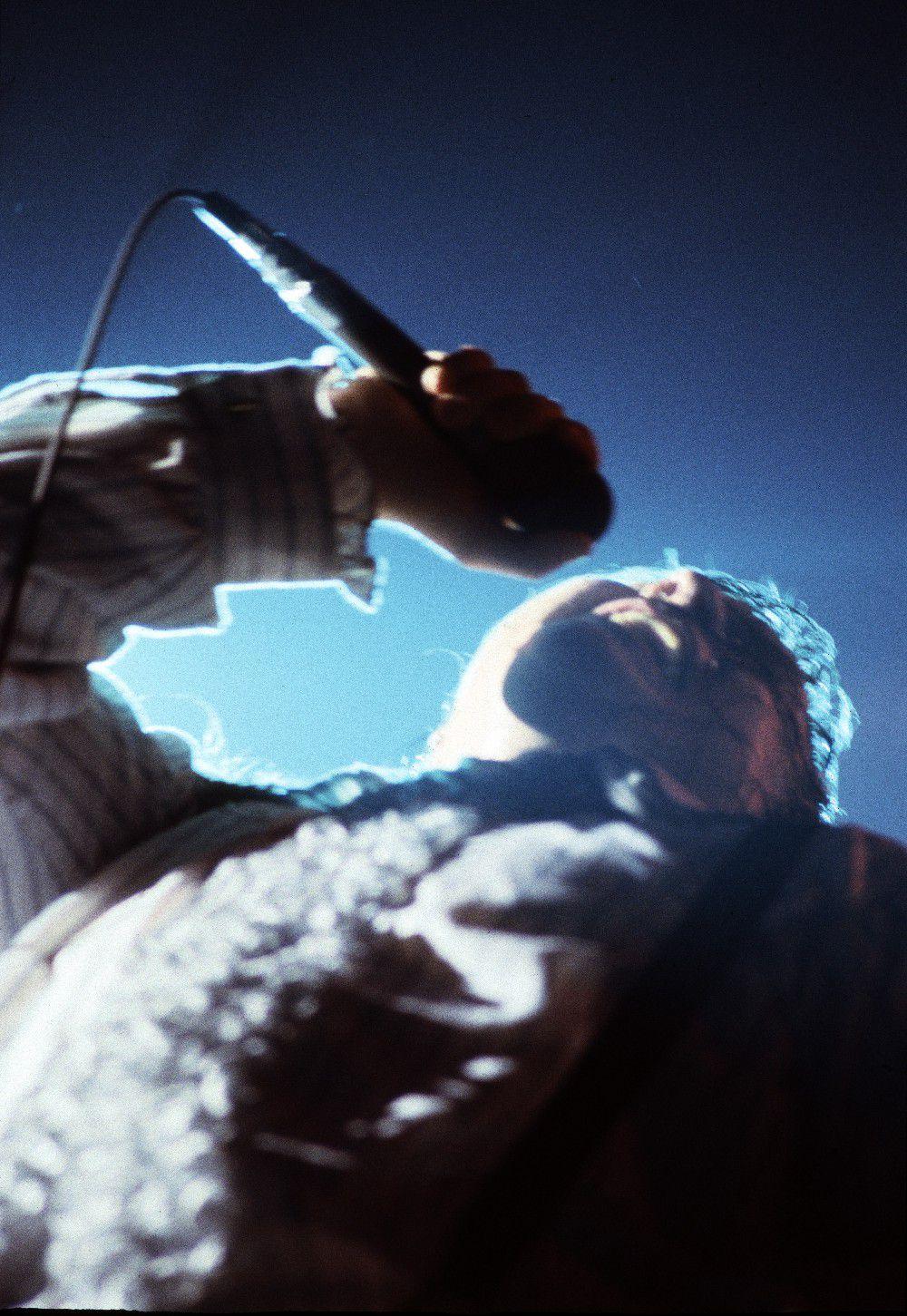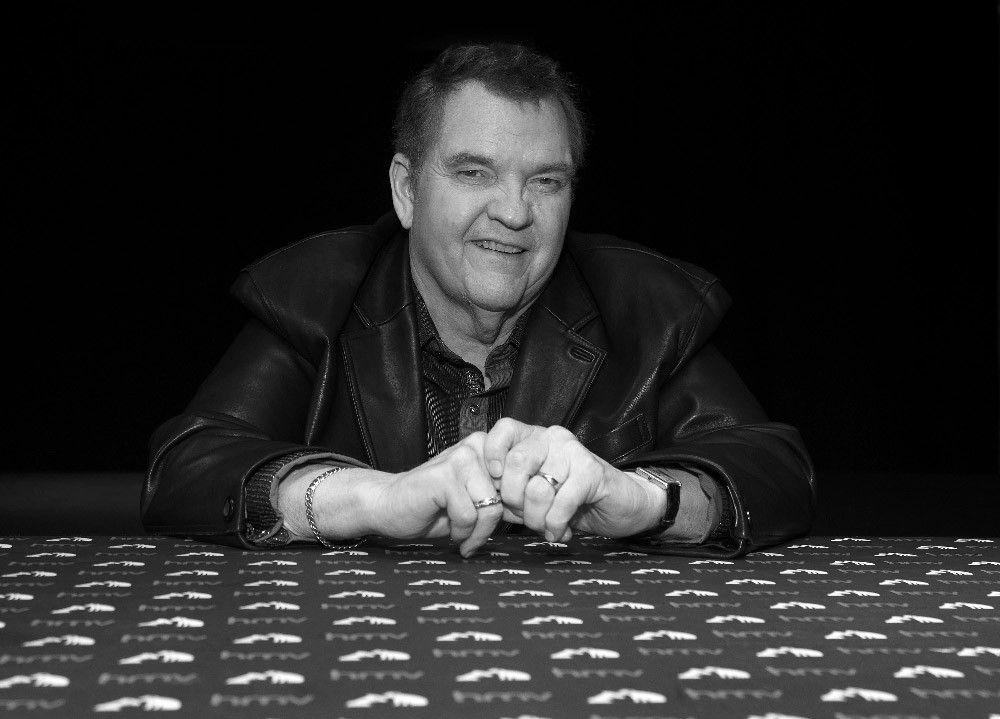
The trick here is to talk you into Meat Loaf (who can be quite rad) while simultaneously talking you out of Meat Loaf’s new album (which is mostly terrible). How hard can this be, though, really? His best songs are flamboyantly dinner-theatrical, clock in at somewhere between three and 10 minutes longer than is advisable, and stand as transcendent monuments to classic rock grandeur in spite of themselves. His 13th studio album, Braver Than We Are, nails the first two. And you all know what he says.
Listen to this goddamn song again. Incredible. Three fun facts about “Two Out of Three Ain’t Bad”:
- The lyrical conceit — it’s late and it’s snowing, so take off your pants — is identical to that of “Baby It’s Cold Outside.”
- If you perform it at karaoke, the building uproots and levitates and relocates itself to a much nicer part of town.
- It is the single greatest power ballad in recorded history.

Only two of those are true, but that’s, y’know, pretty good. The best part is the chorus; the second-best part is the way Meat Loaf delivers the line, “But there ain’t no Coupe de Ville hidin’ at the bottom of a Cracker Jack box” like he’s Desdemona. It’s ridiculous. It’s awe-inspiring. It’s a song the husky Texan born Marvin Lee Aday was born to sing. Turns out there are a lot of songs like that. But only one guy — another guy — can write ’em, and there’s not enough for 13 albums.
“Two Out of Three Ain’t Bad” is the best song on Bat Out of Hell, Meat Loaf’s 30 million–copy-selling 1977 breakthrough, which sounds like Bruce Springsteen wearing a cape and plastic vampire teeth. It sounds like The Rocky Horror Picture Show if The Rocky Horror Picture Show were the only movie playing on every screen in every theater in America and they show some other, way more boring movie in one tiny theater per town every Saturday at midnight. It sounds like Beauty and the Beast if the Beast delivered all his lines from a Mayan Red 1979 Pontiac Trans Am.
Please go listen to Bat Out of Hell immediately. “Heaven Can Wait,” another epochal piano ballad, is the awesome song you forgot; “Paradise by the Dashboard Light” is the awesome but wildly overexposed song you remember. (Pro tip: Try listening to “Paradise by the Dashboard Light” as a young child unaware that it’s about fuckin’ in a car, and and also that terms like “second base” and “third base” are often employed as sexual euphemisms. That way you get to sit there confused as to why they stuck a baseball play-by-play announcer in the middle of a song about literally driving to heaven.)
BOOH’s not-so-secret weapon is composer/songwriter/producer genius Jim Steinman, the reclusive Phantom of the Rock Opera who penned Bonnie Tyler’s “Total Eclipse of the Heart,” Celine Dion’s “It’s All Coming Back to Me Now,” and a great many other righteously verbose volcanos of raw sentimentality. Meat Loaf has spent his career trying to live without Steinman and mostly failing. After the pair teamed up again for 1981’s Dead Ringer (Cher on the title track!), various record company shenanigans and personal feuds forced Meat Loaf to fend for himself on three more ’80s records that went nowhere. Please enjoy 1986’s “Masculine,” which includes the line “When she wants to make love / I’m masculine,” and features drums that couldn’t sound any more ’80s if you replaced the snare with a guy who just yelled out ’80s! every two beats.
And then came 1993’s Bat Out of Hell II: Back Into Hell, a Steinman-fueled multiplatinum smash and immaculately shlocky sequel right down to the title. You can spend thousands of words trying to explain how a ’70s stegosaurus scored an MTV-approved megahit called “I’d Do Anything For Love (But I Won’t Do That)” the same year In Utero came out. But really, it only takes two words: “November Rain.” This song is “November Rain,” but much more so. Too dumb to not be brilliant, and way too big to fail. The video is “Janie’s Got a Gun” if you gave Janie a nuclear armada. What a time to be alive. It was long ago, and it was far away, and it was so much better than it is today.
More darkness: Meat Loaf roamed the wilderness mostly solo for his next three records, a low-impact streak that ended, dubiously, with 2006’s metal-tinged Bat Out of Hell III, billed as a gala dynamic-duo reunion (it includes a bunch of old Steinman songs) even though the two were estranged and sassing each other in court over the Bat Out of Hell trademark. You even get a cover of “It’s All Coming Back to Me Now,” but the only thing that comes back is the anxiety. “That should never have happened,” Meat Loaf allowed to Rolling Stone a couple of months back. “To me, that record is nonexistent. It doesn’t exist.” “Blind as a Bat” is hilariously overblown and pretty dope, but otherwise, OK, sure. It’s for the best. You’re not a real rock star if you don’t disown at least one album.

That fate may one day befall Braver Than We Are. Out Friday, this is a genuine collaborative effort — with “All songs by Jim Steinman” emblazoned right on the cover, in fact — that sounds both sadly subdued and not subdued at all. The actually subdued part is mostly Meat Loaf’s voice, which he has blown out roughly 500 times over the course of the past 40 years, but this time is different. He turns 69 this month, and collapsed onstage in June while singing “I’d Do Anything for Love.” It’s way too much to process, the notion that Meat Loaf might’ve nearly died onstage while singing his famous song about how he’d do anything for love except one unspecified thing.
What remains for him now vocally is his low end, a wobbly, melodramatic warble that still fits the bill here — he sounds like there’s a flashlight glued to his chin, and you can almost smell the campfire — but there’s no grandiose, operatic trills to set it off. He needs powerhouse female vocalists for that now, including Ellen Foley and Karla DeVito, who both hail all the way back to the Bat Out of Hell boom years. They used to all be equals in this grandiose Battle of the Sexes, but now, even on the tender ballads, every time a woman starts singing, you picture her grabbing Meat Loaf’s forearm as he dangles off the edge of a cliff. If you want the truth, he sounds exactly like Win Butler from Arcade Fire, which is, come to think of it, a hoot.
The record’s best song, the tender ballad “Speaking in Tongues,” includes the phrases “An erection of the heart” and “You got a spark / I got wood.” This is what qualifies as a high point. Braver Than We Are begins with “Who Needs the Young” (LOL), a punch-drunk carnival romp too insane to be listenable and yet too timid to go the full Tom Waits. “Going All the Way Is Just the Start (A Song in Six Movements)” has, thanks to Foley and DeVito, the album’s best and most unashamedly bombastic chorus, but it’s at least seven minutes too long and could do with, oh, let’s say five fewer movements. When DeVito howls, “Sometimes it’s the flesh / And the way it seems to YEAARRRRN” like she’s surrounded by people in cat costumes, that’s the exact moment when your bow tie starts spinning. It never stops.
There’s a song here called “Loving You’s a Dirty Job (But Somebody’s Gotta Do It)” that does not live up to that title, which is bad news for a dude whose whole gig is living up to his song titles. The back half gets all digital and surly and apocalyptic: “Skull of Your Country” is a weird “Total Eclipse of the Heart” reprise full of corpses, drones, and rivers/highways of blood. (Meat Loaf is a Celebrity Apprentice veteran who is lately disinclined to discuss Donald Trump in any context.) And the whole thing has an unseemly Failed Musical feel: These are indeed Steinman songs, but many predate Bat Out of Hell itself, and others are from less prominent endeavors long past. We’re raiding a vault here that comes uncomfortably close to feeling like a crypt.
It’s a standard rock-star move, the Contemplating My Mortality album: Johnny Cash made at least six of ’em. But it’s an odd fit for a dude engineered from the beginning to sound immortal, if not completely undead, as though he were hanging upside-down from the ceiling. There is no road map for aging gracefully when grace was, delightfully, never your strong suit to begin with. “There are things we learn at the end of life / There are things we learn at the start,” Meat Loaf moans, with not a little tenderness. What we learn here is that we probably ought to have been even more grateful back at the beginning.

